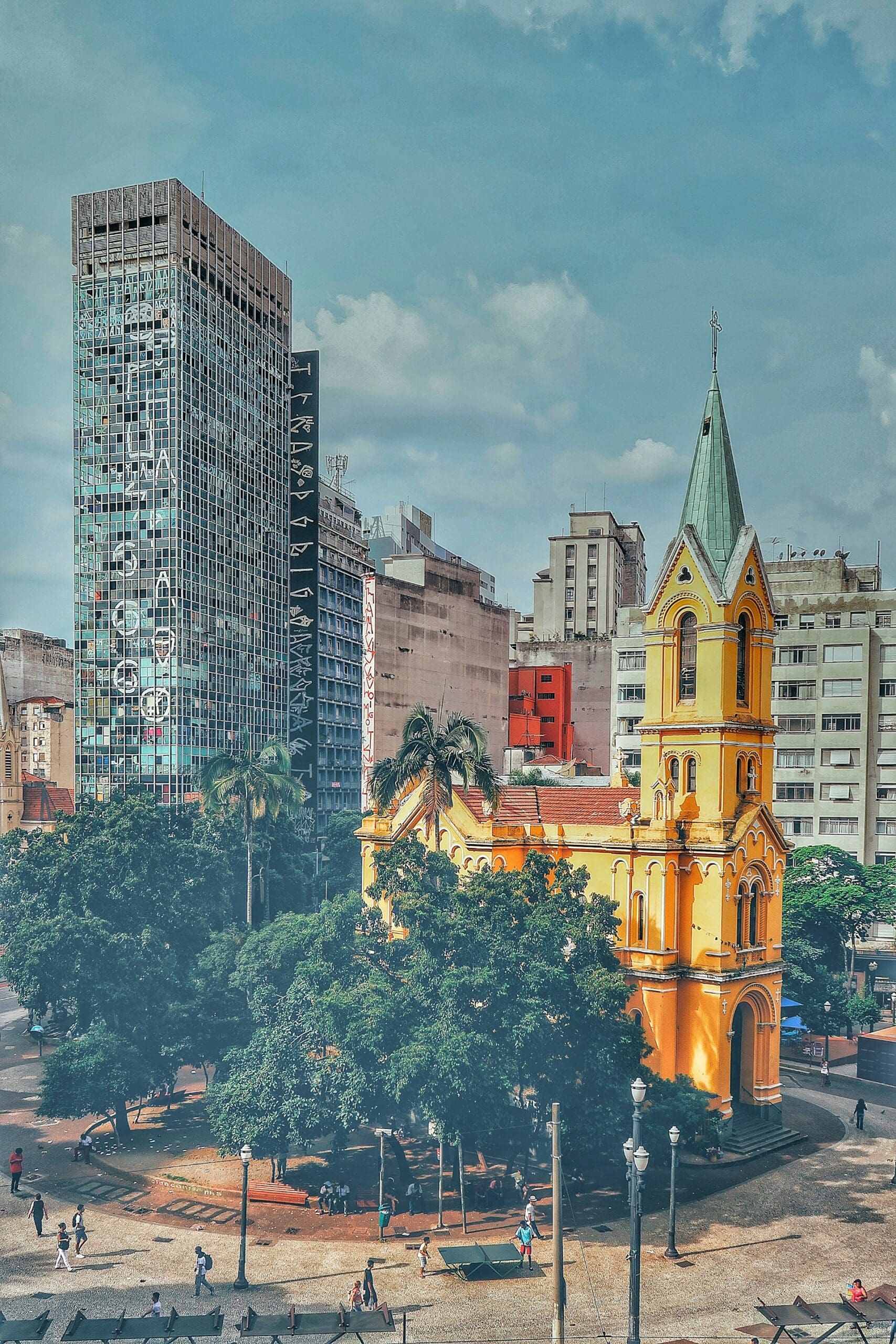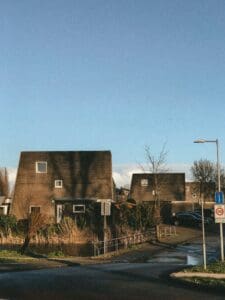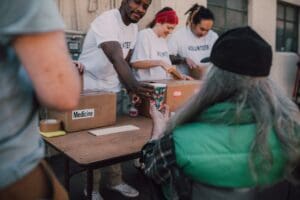By Leandro Ferreira
Leandro Ferreira heads the Brazilian Basic Income Network (RBRB). He is currently involved in a study of the Renda Básica de Cidadania (Citizens’ Basic Income) in Maricá, a municipality in the state of Rio de Janeiro. The policy was created by the local government in 2013 and is now the largest basic income programme in Latin America. Since its expansion in 2023, 93,000 of the 197,000 people in the city receive the payments – almost half Maricá’s population.
To be eligible, people must have lived in Maricá for three years, have a household income of less than the total of three minimum wages, and be listed in the national government’s unified registry for social programmes (Cadastro Único). The money is paid in a local currency, the mumbuca, and can’t be converted to cash. It is administered by a community bank, the Banco Mumbuca, and can only be spent in Maricá through a card and a phone app. Recipients receive 230 mumbucas per month, equivalent to around US$84. This is slightly above Brazil’s individual poverty line.
We caught up with Leandro at the 23rd Basic Income Earth Network Congress, recently held at the University of Bath, to discuss the success of the programme and what its lessons are for basic income movements around the world.
The interview has been edited for length and clarity.
Beyond Trafficking and Slavery (BTS): Could you tell us about what’s happening in Maricá?
Leandro Ferreira: Maricá is a poor city, very close to Rio de Janeiro. The city is a dorm city – people work in Rio and go back to Maricá. They have jobs, or some kind of income, but they were spending their money in larger centres like Rio or Niteroi. So the local government had to find alternatives for economic development.
They decided to use oil revenue from the offshore fields in front of Maricá to pay for a number of policies. They increased the number of hospitals and the quality of schools, and addressed the transportation issues that come with being a dorm city. They now have free buses, for example.
They also instituted a basic income for the city’s poorest residents. They pay it electronically in a local currency to try to make people spend their money in Maricá itself, thereby also boosting the local economy.
Maricá is using oil revenue in innovative ways to do public policy. It’s become an example for so many other municipalities, which is good. Other municipalities in Brazil have been in the same situation with money from oil fields, but their money was very badly spent. This model shows that a successful alternative is possible.
BTS: How much of Maricá’s population is now receiving the basic income, and how were they selected?
Leandro: It’s now reaching 47% of the population (93,000 of 197,000 residents). They are the poorest members of the city, effectively. It started in 2013 with the same beneficiaries as the Bolsa Familia (Brazil’s main conditional welfare programme), or about 14,000 people, and then grew from there. The law for the municipal programme in Maricá states that it should be universal, and they will reach it step by step.
Bolsonaro is still a thing we have to overcome
BTS: You said other states have been inspired and are trying to replicate the scheme. What has been the reaction of the federal government?
Leandro: The former mayor of Maricá who introduced the basic income, Washington Quaquá, is now a congressman for Lula’s Workers’ Party (PT). We use his office in Brasilia to suggest that the federal government should move towards the Maricá model.
But in recent years the federal government has had the challenge of recreating a lot of social policies, including Bolsa Familia, which had been dismantled by Jair Bolsonaro, the former prime minister. Bolsonaro is still a thing we have to overcome.
So we’re pressuring the federal government to look more closely at the Maricá example, but understand the constraints created by the previous government as well as the fiscal situation.
When Bolsa Familia was reinstated last year, we suggested it could also be paid, at least in part, as a digital social currency that is locally based. We are also trying to convince the authorities to use the community bank model in other municipalities. Bolsa Familia has a very well recognised multiplier effect, and by using local currencies and community banks it keep some of that effect to stay in local economies. It would be a big boost for them.
BTS: You’ve been evaluating Maricá’s programme in collaboration with the Jain Family Institute, a New York-based research centre. What benefits from the study have you been able to use in campaigning on a federal level?
Leandro: We’re in the final phase of our evaluation and have good information. We hope our data will have a major impact, particularly in thinking about the conditionalities (i.e. income thresholds) built into the Bolsa Familia. Questioning those conditionalities is taboo, but our data gives us reason to reconsider them.
We are expecting the data to show that the basic income in Maricá has a more positive effect on people’s health and education than the Bolsa Familia does. That’s the kind of thing we hope to use going forward. We also have data on how the basic income has impacted the city’s economy and labour market. Formal jobs have increased. Businesses have been created. And we’ve seen that business owners understand that money in the hands of the population is better for them too.
Skilful leadership in policy and communications has brought a lot of attention to Maricá’s programme. It’s been covered by the national networks, in television, in major newspapers. That publicity coupled with good information allows us to push for much of what we support.
BTS: What was the conversation like in Brazil about deservedness versus undeservedness?
Leandro: Deservedness was an issue 20 years ago when the Bolsa Familia was first instituted. There were a lot of discussions in 2006, when Lula was about to be re-elected, on whether people were turning into vagabonds because of Bolsa Familia. Or whether people had more kids because of it.
You can track the shift in attitudes by looking at the electoral platforms of right-wing candidates. In 2006 they were against it, calling it bad charity. In 2010 they said Lula was only successful because of the programme. In 2014 they said they would improve the programme. In 2018 Bolsonaro had universal basic income in his platform.
So deservedness is entrenched in the Bolsa Familia culture, and it’s something that by now is widely accepted. People get it as something positive.
Having that infrastructure in place gave Maricá an enormous advantage when the pandemic hit
BTS: Has Maricá’s basic income programme received any pushback?
Leandro: The policy itself has its own challenges, but I wouldn’t say pushback. The mayor was re-elected with 88% of the votes, so it’s widely accepted that it’s something positive for the city.
BTS: So the 53% that didn’t get it were still on board with it?
Leandro: Yes. Some of them are business owners, and thus they are also indirect beneficiaries.
BTS: What are the main lessons from Maricá’s programme that you think are transferrable to other contexts, including places like the US or the UK?
Leandro: In the US you have a huge number of trials and some of them are municipally based. They could also try experimenting with using the digital social currency experience.
Maricá is a city that has a lot of oil revenue, so it has a lot of money. But money alone is not enough. If you go to another place that has a lot of money and no budget restrictions, would you be able to say to 200,000 people let’s give everybody some money and ask for nothing? It’s not easy. That requires a lot of political ability, a lot of leadership.
BTS: How did the Covid pandemic influence the policy?
Leandro: It was incredibly interesting to follow what happened in Maricá and Brazil. Our network participated in the proposal of emergency benefits at the federal level, and we kept saying: “We’ve got to look at Maricá.”
The Bolsonaro government took some of our suggestions, others they didn’t. One thing they did was use the traditional bank network to pay the emergency benefits, and it was a complete mess. You didn’t want people to get together during the pandemic, and there were lines of 1km in every city in Brazil.
Maricá, though, had everybody with a card in their pocket beforehand, and an app. So when city hall decided to increase benefits, it was just a matter of making the decision. There wasn’t much impact in Maricá, while in the rest of the country it was very hard for people to get their benefits. Some had to wait months. Having that infrastructure in place gave Maricá an enormous advantage when the pandemic hit.
BTS: What will be next for basic income in Brazil?
Leandro: We have a lot of pressure from financial markets for more fiscal constraints, but right now we are trying to make our case to increase the budget for Bolsa Familia. We also have a working group to try to visualise how Bolsa Familia could be turned into basic income. We of course are not proposing getting rid of it. But we are suggesting some improvements we think will take us closer to the universal basic income.




















